Publications
Articles, publications, books, tools and multimedia features from the U.S. Institute of Peace provide the latest news, analysis, research findings, practitioner guides and reports, all related to the conflict zones and issues that are at the center of the Institute’s work to prevent and reduce violent conflict.

Scott Worden on Afghan Elections and the Peace Process
Amid news of an interim U.S.-Taliban deal, Afghanistan’s election commission announced President Ashraf Ghani has won reelection—a result his opponent has openly rejected. USIP’s Scott Worden warns this kind of political infighting weakens the government’s negotiating position ahead of possible intra-Afghan talks, saying “the Taliban profit from political chaos.”
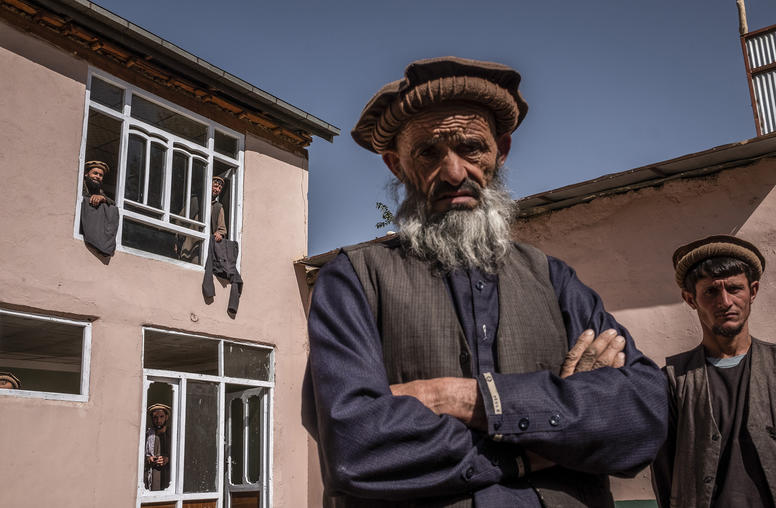
Will a Prisoner Swap with the Taliban Push the Afghan Peace Process Forward?
It’s been over two months since President Trump announced a halt to U.S.-Taliban peace talks. In a move that could revive the moribund peace process, the Afghan government and Taliban completed a prisoner exchange that had been announced last week but then delayed. An American and Australian professor held by the Taliban were freed in return for three senior Taliban figures. Meanwhile, Afghanistan’s September 28 presidential election remains undecided, further complicating peace efforts. USIP’s Scott Worden looks at what impact the prisoner exchange could have on the peace process, how regional actors have sought to fill the vacuum in the absence of the U.S.-led talks and the connection between negotiations and the election.

Scott Worden on Afghan Elections and the Peace Process
A week and a half after Afghan presidential polls, the results remain unclear. But, we do know that turnout was historically low, largely due to dire security conditions. Meanwhile, with the peace process stalled, USIP’s Scott Worden says the upsurge in U.S. military operations against the Taliban is a “pressure tactic, not a victory strategy.”
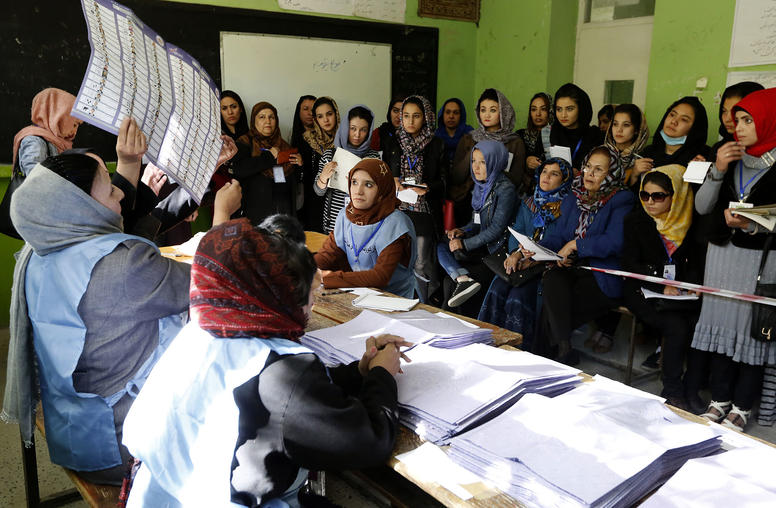
What to Watch for in Afghanistan’s Presidential Election
After several delays, Afghans will finally head to the polls on Saturday to elect their next president. The election comes amid an indefinite stall in the year-long U.S.-Taliban negotiations following the cancellation of a high-level summit earlier in the month. There has been a debate over the sequencing of elections and the peace process for months, but the vote will move ahead this weekend. As with all post-2001 Afghan elections, security risks and the potential for fraud and abuse loom over these polls. USIP’s Scott Worden and Colin Cookman look at how insecurity will impact the legitimacy of the vote and what measures have been taken to combat electoral mismanagement and fraud.

Scott Worden on a U.S.-Taliban Peace Deal
A peace agreement between the U.S. and Taliban is rumored to be imminent. But USIP’s Scott Worden says any deal would only be “the first step, the tip of the iceberg” for lasting peace in Afghanistan, as the conflict stems from political issues “that have been going on for about 40 years.”
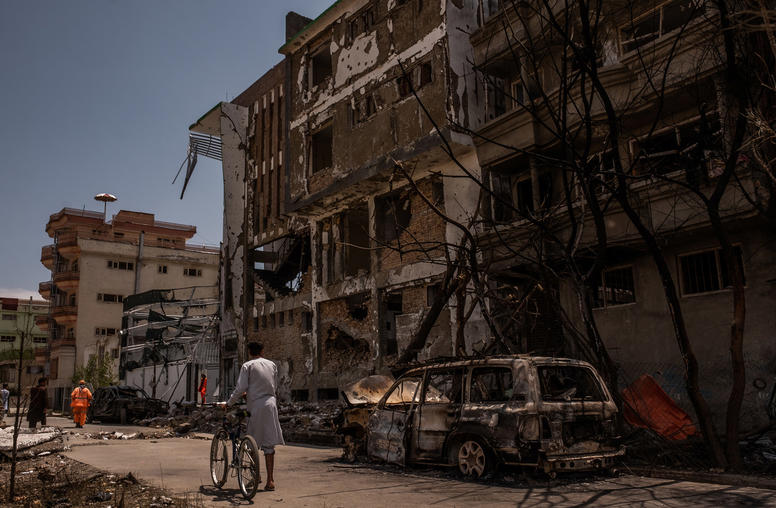
Taliban Talks and Violence Loom Over Afghan Presidential Elections
Campaign season for Afghanistan’s twice-delayed presidential elections opened in grisly fashion on Sunday. An insurgent attack on the Kabul office of President Ashraf Ghani’s top running mate, Amrullah Saleh, killed more than 20 and wounded at least 50. As the attack demonstrates, security will be a top concern during the elections. But, the ongoing U.S.-Taliban talks and nascent intra-Afghan negotiations further complicate matters. And on top of all that, Afghanistan’s post-2001 elections have been characterized by deep challenges, many of which remain unaddressed with little time to fix. USIP’s Scott Worden surveys the scene two months ahead of the vote.
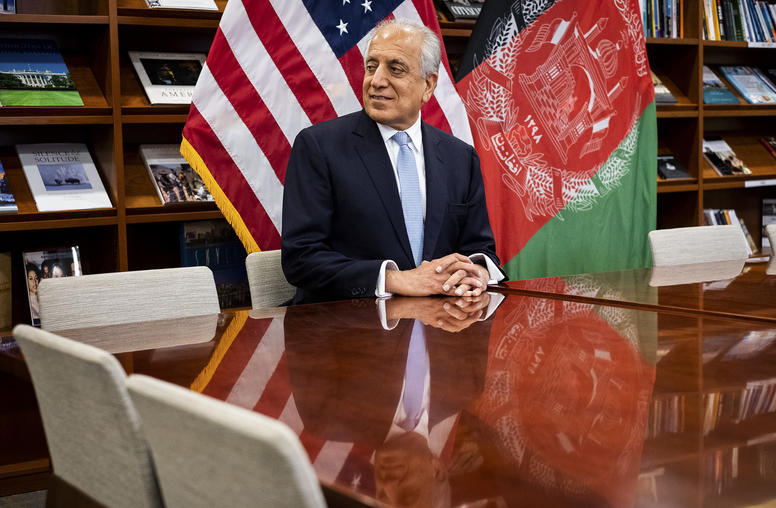
U.S.-Taliban Talks Make ‘Significant Progress’: What’s Next?
After years of stalemate, a framework deal between the U.S. and the Taliban has inspired hope that the Afghan war—the longest in U.S. history—could come to an end. USIP’s Scott Worden analyzes the progress made in recent talks, why the U.S. is now directly negotiating with the Taliban and the implications of further negotiations and a potential peace deal on Afghanistan’s 2019 presidential election.
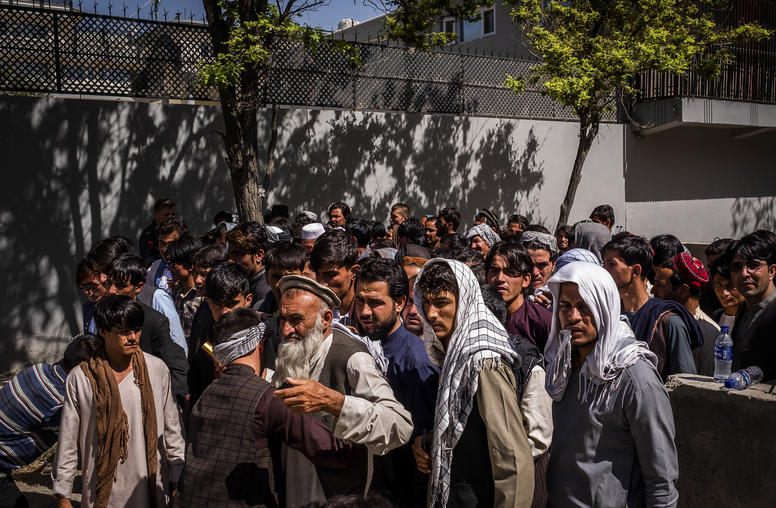
Amid Intense Violence, Afghans Show Support for Democracy
USIP’s Scott Worden examines Afghanistan's October parliamentary elections, including the impact of violence, the elections’ credibility and what implications the polls will have for the peace process and the critical 2019 presidential election.

Scott Worden on Afghanistan’s Elections
Just back from Kabul, Scott Worden shares his analysis about the mood on-the-ground with the long overdue parliamentary elections set to take place this weekend. Taliban interference, fraud and voter turnout will greatly impact the election’s legitimacy, which will foreshadow what to expect for the 2019 presidential election.
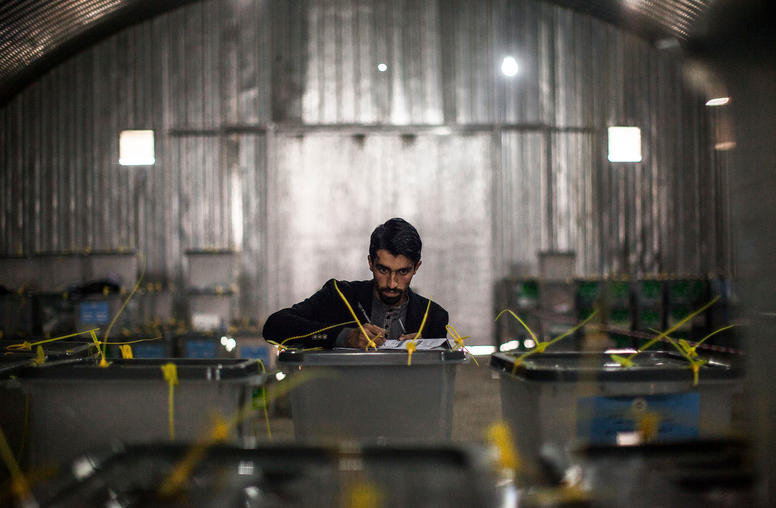
Afghanistan’s Parliamentary Vote: A Canary in the Presidential Poll Mine
There is a palpable sense of anticipation in Kabul days before parliamentary elections will be held. Blast walls, billboards and powerline poles are plastered with the campaign posters of the hopeful candidates. With 800 candidates competing for 33 seats in Kabul, winning a seat in the province will be challenge. The possibility of successful electoral process nationally is equally daunting, however, as poor security, delayed preparations and the last-minute introduction of electronic voter verification machines (in a country with spotty electricity) make pulling off a credible vote a real gamble.